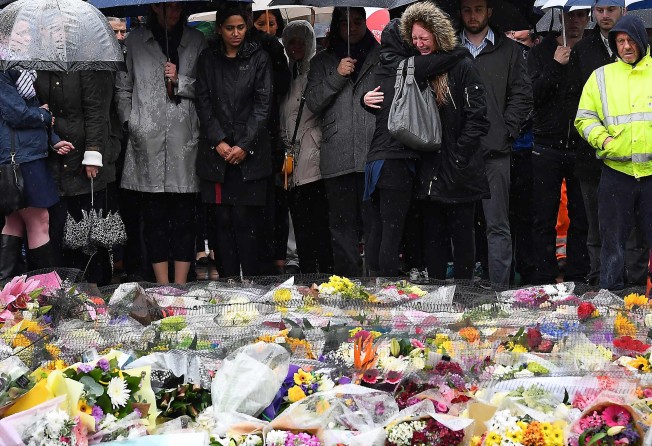Letters to the Editor, June 9, 2017

Terrorist threat now a global phenomenon
The latest act of terrorism in the UK, the attack in London, has left people in the country and around the world shocked.
It is difficult to imagine what loved ones are going through as a result of this outrage, with relatives and friends either dead or seriously injured in hospital.
In a matter of heartbreaking minutes, dreams were shattered for so many individuals. What happened forces us to think about the safety of people, not just in a big city like London, but around the world.
It was not so long ago that, when visiting places like London, a terrorist attack was the last thing on your mind. People felt safe most of the time, but that sense of security is no longer with us.
Things took a turn for the worse with the growth of Islamic State and IS now frequently claims responsibility for these attacks wherever they take place.
I think we have to accept that nowhere is completely safe any more, not even cities with a good reputation for security like Hong Kong and Singapore.
It was not so long ago that the UK was regarded as having some of the safest cities in the world, with a relatively low violent-crime rate. But, now, terrorists see it as a legitimate target.
Despite all that has happened, I still think most citizens would agree that Hong Kong remains one of the world’s safest cities, but we should not be complacent.
The authorities must be prepared and ready to deal with any potential terrorist threat that may arise. After all , it is impossible to predict where IS terrorists will strike next.
It is important that all citizens, in Hong Kong and elsewhere, remain vigilant.
There is no need to be unduly concerned, but we should always be aware of potential threats and not rely on others to protect us. Sometimes, our safety is in our own hands.
Leung Wing-sum, Tai Kok Tsui
Proposed travel ban is un-American
I support the decision of federal courts in the US to rule against President Donald Trump’s executive order banning travellers from some Muslim majority countries.
Trump says he is trying to protect the American people from terrorism, but critics believe it is an attack on Muslims.
Such a ban, if implemented, would undermine the protection of human rights and respect for people of different beliefs that have been part of the culture of the US since its foundation as a nation state. Also, this executive order is an act of religious discrimination.
Jason Ng, Tseung Kwan O
Life education centres for troubled teens
Concerns have been raised by your correspondents and columnists about online suicide “games”, which are trending on social media.
They have been linked to teenage suicides around the globe and this issue must be addressed to protect vulnerable teenagers.
The Hong Kong government must do more to help our troubled youngsters, especially given the pressure they are under from the local education system.
They may have very high and unrealistic expectations and may not be able to handle the stress if they fall short of these expectations.
This is why young people need help with life planning, to help them try to keep a positive attitude and find the right career path.
Parents need to talk to their children and help them if they are suffering from strong peer pressure.
Having life education centres will be a big help for teens who are stressed.
Chee Hiu-ching, Yau Yat Chuen
Boost number of PE lessons in school syllabus
Many teenagers and children in Hong Kong are not getting enough physical activity because they are having to spend so much time doing homework, study for tests and attend tutorial classes in the evening and at weekends.
This lack of exercise could have an adverse effect on their health.
The local education system is putting youngsters under so much pressure and so they feel they must focus most of their attention on their academic performance. This is reflected in the curriculums in secondary schools, where there are so many classes for various subjects that there is little time left for physical education.
Many parents compound the problems by failing to focus on their children’s physical health.
The government needs to alter the secondary school curriculum so that there are more PE lessons.
Studying is important, but the physical health of young people must not be neglected.
They need to have time to exercise and relax, which will help them cope better with the stress caused by a busy school schedule.
Annie Lai, Kowloon Tong
Long past time to fix building’s broken clock
In December, I wrote to the building management of the AXA Centre in Gloucester Road, Wan Chai.
I said that for the past year when I was using a nearby flyover, regularly walking towards Jaffe Road, I had noticed that the clock on the outside of the building was broken (stuck at 11.59).
AXA replied by saying that the maintenance of the clock was not its responsibility, but it would let the relevant parties know about the problem. However, it is now June and the clock has still not been repaired.
This creates a bad impression with pedestrians, including visitors, because the clock is prominently displayed on the building; you cannot miss it as you pass by, and it is not working.
I urge AXA or the building management to act promptly and undertake the necessary repairs so that the clock is working again.
Sylvio F. Bertoli, Wan Chai